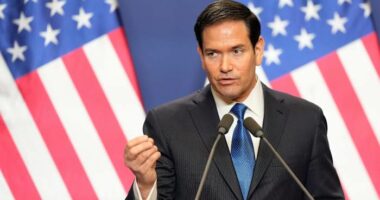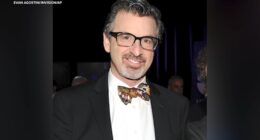Share this @internewscast.com

What can you share on social media without endangering your employment? This question has become pressing as several Central Florida employees faced scrutiny and dismissal for posts concerning the passing of conservative activist Charlie Kirk.
In Osceola County School District, four teachers are currently under investigation for social media posts referring to Kirk’s recent death during an event at Utah Valley University.
Additionally, a Florida Fish and Wildlife Conservation employee was fired over the weekend for sharing a post that made light of Kirk’s passing.
Dr. Kimberly Voss, a Mass Media Law professor at the University of Central Florida, discussed the complexities of expressing free speech on social media in light of these situations.
“There is no privacy in public. Anything you do that others can see offers no privacy. And social media, by nature, is social,” Voss explained.
While the First Amendment protects freedom of speech, Voss cautioned that it does not guarantee immunity from employer discipline.
“While you have the right to post on social media under the First Amendment, you must consider the consequences,” she stated. “And what implications does that bring?”
Since the teachers from Osceola are government employees, their cases present intricate legal challenges. Voss pointed out that private employers have more freedom to discipline staff without the constraints of First Amendment protections, which only cover government actions.
Teachers are held to a higher standard as public servants and must ensure their conduct does not undermine the trust of the students and families they serve. We will hold teachers who choose to make disgusting comments about the horrific assassination of Charlie Kirk accountable.… pic.twitter.com/KzXCCGkvZm
— Anastasios Kamoutsas (@StasiKamoutsas) September 11, 2025
Andrew Spar, president of the Florida Education Association, emphasized due process for educators facing such scrutiny. He issued a statement asserting that the union will not allow teachers to be “tried in court without the proper due process.”
This debate over the bounds of free speech intensified after U.S. Attorney General Pam Bondi suggested on a podcast that hate speech is not protected by the First Amendment. Voss clarified that hate speech becomes an issue when it incites or encourages violence, rather than simply being offensive speech.
“The idea that you can say anything you want has limits,” Voss said. “It doesn’t mean there aren’t consequences to that.”
As social media posts continue to generate controversy, employees must balance their right to express themselves with possible professional repercussions.
Copyright 2025 by WKMG ClickOrlando – All rights reserved.










